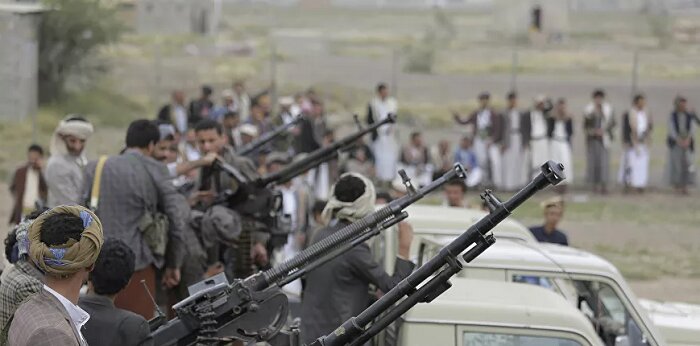

TEHRAN — In a series of tweets posted on Tuesday, Yahya Saree, Yemeni Armed Forces spokesman, elaborated on the second phase of the Rabi Al Nasr (Spring of Victory) Operation, explaining that almost 70% of the strategic governorate of Maarib is in control of Ansarallah.
In the tweets, Saree announced that only the city of Maarib and the Valley of Dhana are still under the control of the Saudi-led coalition, and Yemeni armed forces are in control of the province.
He added that Al-Juba and Jabal Murad districts in Maarib governorate were liberated in the second phase of the Rabi Al Nasr Operation.
A total area of 1100 km2 was liberated, according to the spokesman.
Saree also unraveled the details of the second phase the operation, in which a reported 159 airstrikes were carried out.
“Most of these raids targeted Juba, Rahba and Harib districts. Our air defense succeeded in carrying out 86 confrontation operations,” he added.
In the tweets, he outlined the results of the operation, saying that at least 200 coalition troops were killed in the second phase of the operation, while reportedly 550 others were injured. Large quantities of medium and light weapons were also purportedly seized.
Several local tribes in Maarib province have agreed to relinquish and allow the liberation of the oil-rich province, which is considered the last base of the Saudi-led coalition.
A strategic city, rich with oil and gas, Maarib’s liberation is a key point in advantage of the Ansarallah movement, as it clearly indicates that the resistance not only has not been weakened after 6 years, but also, it has gained more power.
Various demonstrations have been held in Yemen in support of Ansarallah, showing their strong position by defying the war against fellow citizens.
Experts believe that the Yemeni armed forces have now reached the doorsteps of the city of Maarib, and the fall of the Saudi-led coalition is not far away.
The occupation troops find themselves in a dilemma, as they are now surrounded, unable to recapture the thousands of square kilometers liberated by the advancing army.
“According to strategic and military implications … we declare today to the whole world that international aggression against Yemen has already been defeated,” Yemeni Defense Minister Mohammad Al-Atefi told Lebanese media on October 27.
——Sour losers
The Yemen war led by the Saudis is reaching to an end, while the victory is impending for the Ansarallah. Perhaps, this explains the Saudis’ anger over the recent remarks of the Lebanese Information Minister, George Kordahi.
In an interview that was conducted on August 5, before Kordahi’s nomination for information minister, he said that in his personal view, the 7-year war in Yemen was “futile.”
He also said that the Ansarallah movement was merely “defending their country.”
Saudi Arabia invited Walid Bukhari, its envoy to Beirut, for further consultation on the matter. Then, on October 27, the Saudi Foreign Ministry summoned the Lebanese ambassador to Riyadh and issued a warning. Kuwait, Bahrain, and the UAE also summoned the Lebanese ambassadors. They heard the explanations, and seemingly, tensions were de-escalated.
On October 29, Saudi Arabia gave a 48-hour notice to the Lebanese envoy to leave Riyadh. According to the statement issued by the Saudi Foreign Ministry, the kingdom also banned imports from Lebanon.
The suit was immediately followed by Kuwait, Bahrain and the UAE. They all gave a 48-hour notice to the Lebanese envoys to leave their capitals. The UAE also imposed a ban on its citizens traveling to Lebanon.
On November 2, Lebanon’s Foreign Minister Abdallah Bou Habib said that the Saudis are dictating “impossible terms.”
In an exclusive interview with Reuters, the minister said that “if they just want Hezbollah’s head on a plate, we can’t give them that,” adding that “Hezbollah is a component of politics in Lebanon. It has a regional armed dimension, yes, but this is beyond what we can resolve.”
Experts believe that the hysterical reaction to Kordahi’s remarks is a part of a Saudi plot to bring Lebanon to its knees and topple the government, as Faisal Bin Farhan, the Saudi Foreign Minister, told CNBC on October 31 that the Saudis have reached a conclusion that they cannot converse with the current government in Lebanon.
“I think we have come to the conclusion that dealing with Lebanon and its current government is not productive and not helpful with Hezbollah’s continuing dominance of the political scene, and with what we perceive as a continuing reluctance by this government and Lebanese political leaders in general to enact the necessary reforms, the necessary actions to push Lebanon in the direction of real change,” Faisal said.
Losing the war in Yemen is the knockout punch that Saudis will receive. The punch will stun them for years.
SA/PA
Related posts:
Views: 0
 RSS Feed
RSS Feed

















 November 4th, 2021
November 4th, 2021  Awake Goy
Awake Goy  Posted in
Posted in  Tags:
Tags: 
















